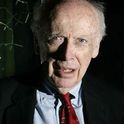In his 1905 book The Protestant Ethic and the Spirit of Capitalism, German sociologist and economist Max Weber argues that the birth of Protestantism in the 16th century led to the development of modern capitalism, as the tenets of the former encouraged the latter. During the Reformation, productivity and devoting oneself to work and economic success began to be seen as evidence of your love and commitment to God, and in turn of your own worthiness in the eyes of God. This attitude migrated to many places, one of them being the United States. Through the mass movement of Puritans and other Calvinists, this led to the intensified, religious capitalism that exists there today—under which you are considered to be godly if you are rich and successful, and deserving of punishment if you are poor. Trans academic Paul B Preciado sums up Weber’s thoughts neatly when he says: “God circulated within the body, commodities and lands by means of capital.”
This mentality can be seen throughout the western world in the revering of “hustle culture”, the juggling of multiple jobs within the gig economy and Beyoncé’s line the “best revenge is your paper”. Of course, the former two are also a result of our current economic climate, with the rising cost of living and job insecurity creating a need for diversifying income, though sometimes they are a result of greed too. I remember a wealthy girl I know flippantly branding herself as “DJ side hustle’” because her dabbling in DJing was only supplementary to her intergenerational wealth and high-salaried career in the arts. I remarked that rich people can’t hustle, because they don’t need to—I found her mocking of the kind of underground labour many of us have to do, and not through choice, irritating.
My attitude to money and success comes not only from my Anglican background, but also from my mother and father’s opposing views on money. My mother came from a distinctly working-class background. Her side of the family instilled in me a work ethic that connects value to how hard you can push yourself, which is not necessarily a bad thing. I’ve found my own life experience has reinforced this view, entering the sex industry because I was in need of money and supporting myself entirely since I was a teenager. With no family money to fall back on, I’ve always had to financially stand on my own two feet, with every dollar I have earned directly correlated with the labour of my body.
My father, on the other hand, had his mother’s upper middle-class wealth as a safety net when he was growing up. As such, he has a more mannered approach to money—it shouldn’t be sought after or discussed or placed above other things. This partially explains how, along with the aid of alcoholism, he has ended up in severely reduced circumstances in his older age—he lives in what would once have been called “genteel poverty’”.
Sometimes I have resented my father’s impractical approach to money, because it has meant the stress and burden of both his circumstances and my brother’s have on occasion fallen on me. Throughout my twenties, I had to act as both parent and bank to them. Yet I cannot deny that his perspective on money has coloured mine, too. When someone lectures me on the need for “passive income” I feel a moral reluctance, a sense that it is ill-gotten gains to have money that hasn’t come directly from my own labour. This distaste extends to using others for profit, or going against your own morals for profit, and has both given me an integrity and a disgust with the world we live in, which is full of people bloated on avarice.
I may have a Protestant work ethic, but I don’t have a Protestant belief in hoarding and asceticism, which are two other traits that Weber argues led to the accumulation of capital. “There’s no point being the richest person in the graveyard” is my “it is easier for a camel to go through the eye of a needle than for a rich man to enter the kingdom of God”.













